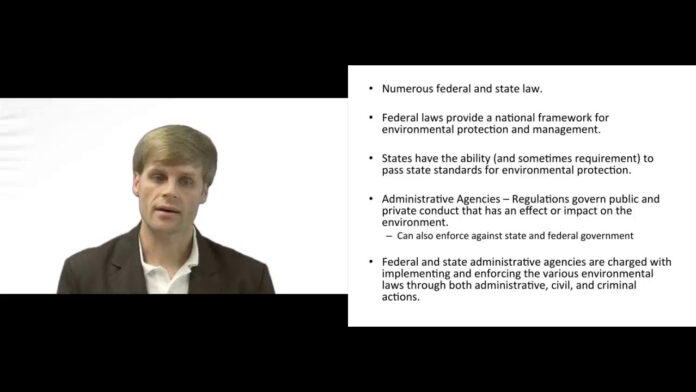Environmental protection is a crucial aspect of ensuring the sustainability and well-being of our planet. It involves various laws, policies, and regulations put in place to safeguard natural resources, reduce pollution, and mitigate climate change. However, with the ever-changing landscape of environmental issues, it is essential to continuously review and amend these laws to address new challenges and promote more effective protection measures.
In recent years, there has been a growing call for amendments to environmental protection laws worldwide. This blog post will provide an overview of the current environmental protection laws, discuss the need for amendments, explore proposed changes, and examine the potential impact of these amendments.
Overview of Current Environmental Protection Laws
Environmental protection laws are regulations that govern human activities and their impact on the environment. These laws aim to protect air, water, land, and other natural resources from pollution and degradation. They also seek to ensure sustainable use of resources, conserve biodiversity, and mitigate the effects of climate change.
In many countries, environmental protection laws are comprehensive and cover various aspects of environmental management. For instance, the United States has the Environmental Protection Agency (EPA), which enforces federal environmental laws such as the Clean Air Act, Clean Water Act, and Resource Conservation and Recovery Act. Similarly, the European Union has several directives and regulations, including the Water Framework Directive, Industrial Emissions Directive, and Waste Framework Directive, to regulate environmental protection.
Despite these efforts, there are still significant gaps and limitations in existing environmental protection laws. These include inadequate enforcement, lack of coordination between different laws, and failure to address emerging environmental issues adequately.
Need for Amendments

There are several reasons why there is a pressing need to amend environmental protection laws. The most critical aspects that require attention include:
Limited Scope of Existing Laws
Many current environmental protection laws focus on specific issues, such as air or water pollution, without considering the interconnected nature of the environment. For instance, a law that only regulates water pollution may fail to address the impacts of land use on water quality. As such, there is a need to adopt a more holistic approach to environmental protection laws, considering the interrelationships between different resources.
Emerging Environmental Challenges
Environmental issues are continuously evolving, and new challenges arise as technology advances or human activities intensify. For instance, the widespread use of plastics has resulted in significant pollution in our oceans and landfills, which are not adequately addressed by current laws. Climate change is another critical issue that has gained more attention in recent years, requiring a review of current laws to mitigate its effects.
Inadequate Enforcement
Enforcement is a crucial aspect of any law’s effectiveness, and environmental protection laws are no exception. However, many countries lack the resources and capacity to enforce these laws effectively. As a result, there are numerous cases of non-compliance with environmental regulations, leading to environmental damage and health hazards.
Lack of Coherence and Consistency
Environmental protection laws are often fragmented, with different laws governing different aspects of the environment. This can lead to inconsistencies and contradictions, making it challenging to achieve a coordinated and comprehensive approach to environmental management. For instance, one law may require companies to reduce their greenhouse gas emissions, while another provides incentives for companies to increase production levels, resulting in higher emissions.
Proposed Amendments

To address the above challenges, various amendments have been proposed to strengthen and improve existing environmental protection laws. Some of these include:
Adoption of Integrated Approaches
Many proposed amendments focus on adopting integrated approaches to environmental protection. This involves looking at the interconnectedness of different resources and addressing them simultaneously. For instance, a law can require industries to implement measures that reduce air pollution and also regulate their waste disposal practices to minimize water pollution.
Introduction of New Laws
Some proposals suggest the introduction of entirely new laws to address emerging environmental issues. For instance, laws that regulate the use of plastics or carbon emissions have been proposed to mitigate pollution and climate change, respectively.
Stricter Enforcement Mechanisms
To ensure compliance with environmental regulations, there have been calls for stricter enforcement mechanisms, such as increased penalties for non-compliance and better monitoring systems. Additionally, there has been a push for more funding and resources to be allocated to regulatory agencies to enhance their capacity to enforce laws effectively.
Consolidation of Existing Laws
The fragmentation and lack of coherence among existing laws have led to proposals to consolidate them into a single comprehensive law. This would streamline environmental regulations and make it easier for companies and individuals to understand and comply with them.
Impact of Amendments
The proposed amendments to environmental protection laws can have both positive and negative impacts. Some potential effects include:
Improved Environmental Protection
The primary goal of any amendment is to improve environmental protection measures. By addressing gaps and limitations in existing laws, we can expect better management of natural resources, reduced pollution levels, and enhanced biodiversity conservation.
Increased Compliance
Stricter enforcement mechanisms and consolidation of laws can lead to increased compliance. When regulations are clear and consistent, companies and individuals are more likely to follow them, resulting in reduced environmental damage.
Potential Economic Impacts
Some amendments may have economic implications, particularly for industries that will need to adapt to new regulations. For instance, companies may need to invest in new technologies or change their production processes to comply with amended laws, resulting in additional costs.
Conclusion
Amending environmental protection laws is a crucial step towards promoting sustainable development and safeguarding our planet’s future. It is essential to continuously review and update these laws to address emerging challenges and improve their effectiveness. The proposed amendments discussed in this blog post highlight some key areas where changes are needed, and their implementation could result in significant improvements in environmental management. It is vital for governments and regulatory bodies to consider these proposals and work towards enacting them to ensure a cleaner, healthier, and more sustainable future for all.

